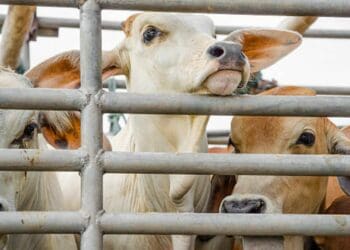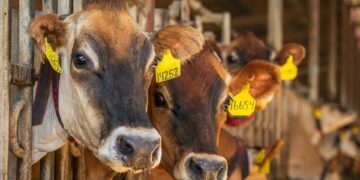Food For Mzansi is marking its seventh birthday not with balloons or a birthday cake, but with a bold national call: Stand up, be seen, and be counted. The campaign, launched this November, is designed to capture the real, lived experiences of South Africa’s farmers, farmworkers and agripreneurs through one of the most accessible and inclusive agricultural surveys ever attempted in the country.
Instead of looking inward in celebration, the agricultural news platform is using this milestone to listen, deeply and intentionally, to the people who feed the nation.
A birthday devoted to listening
“From day one, Food For Mzansi has existed to tell the human stories behind South African agriculture, especially those often overlooked,” said co-founder and strategy director Kobus Louwrens.
“Agriculture is changing so fast. If we want to keep serving the sector meaningfully, we need a clearer picture of who our audience really is and what they need.”
The Stand Up and Be Counted campaign combines storytelling with data, giving every person involved in the food system a chance to say: I am here, and my story matters. For Louwrens, the project is “a chance to look outward and give the entire sector a platform to be seen.”
📢 Stand Up, Be Seen, Be Counted
We want to provide you with the most valuable, relevant information possible. Please take a few minutes to complete this short, confidential survey about your farming practices and challenges. Your feedback helps us tailor our coverage to better support the future of agriculture across Mzansi.
A human-centred portrait of agriculture
The campaign’s design reflects Food For Mzansi’s longstanding commitment to accessibility. Whether a farmer is working from a high-end smartphone or a basic device bought at a local store, the survey works seamlessly – even on a single bar of network signal in the middle of a field.
“We’ve ensured that no matter who you are or where you are, you can participate,” explained Gareth Davies, Food For Mzansi’s head of product and design.
Questions adapt dynamically based on each participant’s answers, meaning a commercial-scale producer and a backyard grower won’t be answering the same irrelevant prompts. “We respect that farmers are busy people. The survey gives us a clear picture without wasting anyone’s time.”
Davies describes the campaign visuals as “unapologetically Food For Mzansi” – familiar green, with a touch of red to stand out across the publication’s busy content ecosystem. The campaign’s message, “Stand up, be seen, and be counted”, is meant not just as a call to action but as a rallying cry.
Turning data into dignity
At its core, the project is about visibility, especially for the people who make agriculture possible but are not always heard.
“So many South Africans in agriculture remain invisible,” said Louwrens. “Small-scale farmers, farmworkers, young agripreneurs, and especially women, it’s rare that they’re at the centre of the national conversation. Decisions get made about them, not with them.”
By collecting data and stories at a national scale, Food For Mzansi hopes to replace stereotypes with reality. The emerging picture, Louwrens says, is one of a younger, more diverse, more entrepreneurial sector than most people realise.
“When people see themselves reflected in credible data, it becomes a form of dignity,” he said. “It says: you matter.”
A milestone already exceeded
Even before the survey’s official close, the campaign has surpassed its initial goal of 500 verified participants from all nine provinces.
For Davies, that momentum is significant: “The traction shows that people want to be seen, want to be heard. And this information allows us to shape our content, events, training and services to help them grow.”
Early data analysis already points to a striking gap between official statistics and reality. While StatsSA’s last surveys counted roughly 40 000 agricultural entities, Food For Mzansi’s comparison with census data suggests South Africa may have as many as 250 000 commercially active agri-producers, most of whom remain undocumented and unsupported.
With one of the largest farmer communities in the country, Food For Mzansi sees the campaign as a way to deepen two-way trust with its readers.
“Our audience has grown with us and shaped us,” said Louwrens. “This campaign takes that relationship a step further. It transforms passive readership into active participation.”
For farmers, workers and agripreneurs, standing up and being counted also affirms a sense of belonging: to a community, to a shared identity, and to a national voice that can influence policy, investment and public understanding.
What success will look like
For Louwrens, the campaign’s real impact will be seen in how the data is used long after the birthday candles are blown out.
“Success is when this report is recognised as a credible source, quoted by policymakers, academics and institutions,” he said. “But more importantly, success is when people in the sector feel: my voice was heard, and the country now speaks about us differently.”
Food For Mzansi hopes to repeat the initiative regularly, filling what Louwrens calls “a huge gap in South Africa’s agricultural data landscape.”
If the seventh birthday is anything to go by, the platform’s next chapter will be deeply rooted in the stories, needs and aspirations of the people who feed the nation – one farmer, one worker, one agripreneur at a time.
READ NEXT: Be seen, be heard: Stand up and be counted, farmers

















